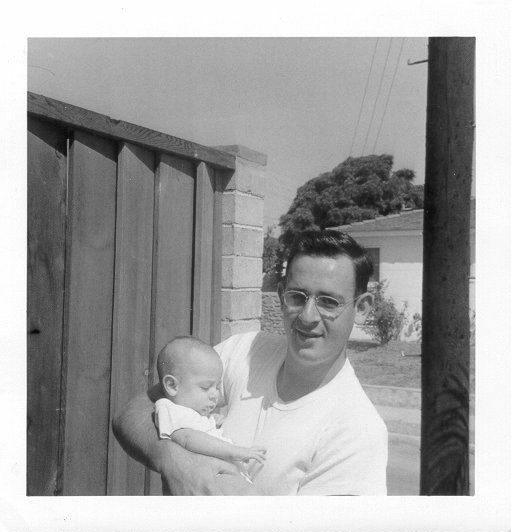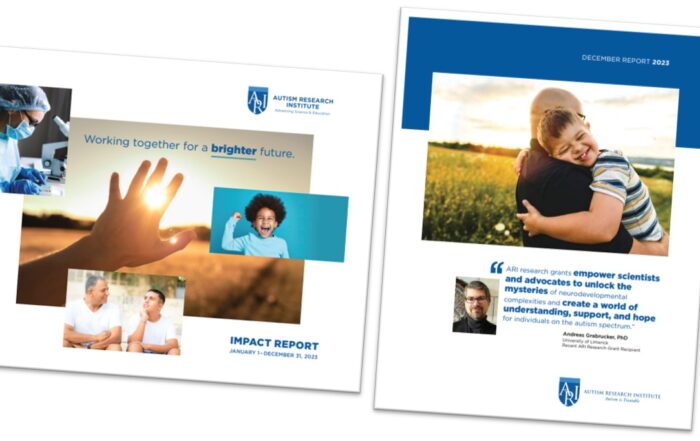 In this milestone year of 2024, the Autism Research Institute commemorates the 60th anniversary of Dr. Bernard Rimland’s groundbreaking work, Infantile Autism: The Syndrome and Its Implications for a Neural Theory of Behavior, published in 1964. While I have often referenced this seminal book in my editorials throughout the years, I believe it is important to take a moment to acknowledge not only the significance of the book itself but also its enduring impact on the broader landscape of autism research, understanding, and support.
In this milestone year of 2024, the Autism Research Institute commemorates the 60th anniversary of Dr. Bernard Rimland’s groundbreaking work, Infantile Autism: The Syndrome and Its Implications for a Neural Theory of Behavior, published in 1964. While I have often referenced this seminal book in my editorials throughout the years, I believe it is important to take a moment to acknowledge not only the significance of the book itself but also its enduring impact on the broader landscape of autism research, understanding, and support.

Dr. Rimland’s introduction to autism
When their son Mark was young, Bernard Rimland and his wife, Gloria, felt unsettled by the pediatrician’s reassurance that he would outgrow the concerning behaviors he exhibited during infancy and early childhood. Mark displayed minimal eye contact, frequent tantrums, and repetitive behaviors such as rocking and finger flicking, and he seemed uninterested in interacting with his parents. While the pediatrician initially dismissed their concerns as typical parental worries, he advised them to monitor and document Mark’s behaviors. Upon reviewing their observations, the pediatrician conceded that Mark’s behavior was indeed unusual.
At this point, Gloria recalled encountering a description of an atypical child in a college textbook. After sifting through boxes, they located and read through the book, leading them to the realization that Mark exhibited characteristics consistent with autism.
Having just received a Ph.D. in experimental psychology, Rimland delved into research to find ways to assist his son. To his dismay, he discovered that the prevailing narrative within the professional community blamed autism on parents—particularly mothers, using the derogatory term “refrigerator mothers”—and alleged parental neglect without substantiating evidence.
Gloria once recounted a story to me about having dinner with a doctor and his wife, at which the atmosphere was more social than work-related. Toward the end of the evening, the doctor’s wife made a surprising remark to Gloria: “I had expected you to be very distant and somewhat rude, but you’re not.”
Similarly, many families with autistic children faced misunderstandings and criticisms from their social circles as well as from professionals. In 2003, PBS aired a one-hour documentary titled Refrigerator Mothers, featuring mothers sharing their experiences of mistreatment and discrimination within their communities.
The genesis of Infantile Autism
Recognizing the lack of evidence for the parent-blaming perspective, Rimland countered by writing an article positing that the behaviors observed in children with autism indicated an underlying biological impairment, likely influenced by genetics, environmental factors, and neurology. Rimland had so much to say about the matter that the article expanded into a book over a five-year period.
The book garnered immediate international acclaim for Rimland’s argument. Consequently, he was offered a one-year tenure at a think tank affiliated with Stanford University, during which he generated many ideas to address the challenges of autism. Among these was the establishment of a national parent network, facilitating the sharing of experiences among families, particularly regarding effective strategies for supporting their children. Rimland, alongside Ruth Sullivan, subsequently founded the National Society for Autistic Children, later renamed the Autism Society of America.
Parents’ reactions to the book
Parents around the world rejoiced as the book gained recognition among professionals. They started reaching out to Rimland, who, despite his full-time job with the U.S. Navy, dedicated most of his evenings and weekends to responding to their inquiries and offering guidance. Over nearly five decades, he tirelessly communicated with parents through calls and letters while also advocating for researchers to explore ways to effectively support and care for individuals with autism.
Before Rimland’s book, parents were often advised to seek marriage counseling while their children were enrolled in play therapy. However, once Rimland’s argument gained traction, the healthcare community underwent a significant shift in approach. This led to the adoption of more aggressive measures, including the use of powerful medications such as Haldol and Mellaril, behavioral interventions (now recognized as Applied Behavior Analysis or ABA), and sensory integration therapy.
The relevance of Rimland’s findings
Rimland’s initial insights into autism remain relevant today. While some cases stem primarily from genetics, most clearly involve epigenetic factors. Additionally, many studies have reported various forms of co-occurring neurological impairment in individuals on the spectrum. In the 1990s, roughly 30 years after the publication of his book, Rimland underscored the link between autism, immune dysregulation, and gastrointestinal disease, a correlation that has since been validated. While numerous research studies over the last 60 years have examined various aspects of autism, Rimland pinpointed those closely associated with the fundamental foundations of autism.
During Rimland’s last days, I spent much of my time visiting with him. He took great pleasure in reminiscing about writing his book and engaging in discussions about the book with parents and professionals. Since the ARI office had only a couple of copies of his books, I searched eBay for additional copies. In my searches, I came across a U.K. edition with a book cover, which was not included in the U.S. publication. I ordered it and presented it to Rimland as a gift. His reaction was one of speechless astonishment, as he had been unaware of the existence of the book cover. For those interested, you can see an image of the book cover along with a photo of Rimland taken around the time of the book’s publication at www.Rimland1964Bookcover.com.
Stephen M. Edelson, Ph.D.
Executive Director, Autism Research Institute
This editorial originally appeared in Autism Research Review International, Vol. 38, No. 1, 2024
Editorial – Fecal Microbiota Transplantation and Autism
Over the past several years, Fecal Microbiota Transplantation (FMT) has become the subject of growing interest in the autism community due, at least in part, to the increased awareness of the gut-brain
ARI’s Latest Accomplishments
Connecting investigators, professionals, parents, and autistic people worldwide is essential for effective advocacy. Throughout 2023, we continued our work offering focus on education while funding and support research on genetics, neurology, co-occurring medical
Biomarkers start telling us a story: Autism pathophysiology revisited
Antonio Persico, MD, a recent ARI Research Grant recipient, explores the role of biomarkers in understanding autism pathophysiology. He discusses the complexity inherent to neurodevelopmental conditions and emphasizes the need to combine




